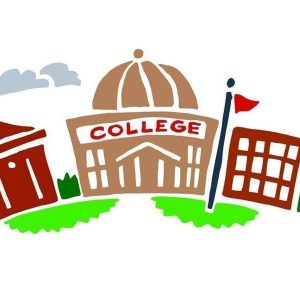 Are you interested in things that fly? Choosing to study aerospace engineering in college could be for you! Aerospace engineering is the study of air and space travel. It is often referred to as “rocket science.” Aerospace engineers research, design, construct, test and maintain aircraft, spacecraft, missiles and related systems and equipment. They also are concerned with flight safety, operating costs, fuel efficiency and environmental impacts.
Are you interested in things that fly? Choosing to study aerospace engineering in college could be for you! Aerospace engineering is the study of air and space travel. It is often referred to as “rocket science.” Aerospace engineers research, design, construct, test and maintain aircraft, spacecraft, missiles and related systems and equipment. They also are concerned with flight safety, operating costs, fuel efficiency and environmental impacts.
The field can be broken down to two major overlapping branches- aeronautical engineering and astronautical engineering. Aeronautical engineers concentrate on aircraft that fly within the earth's atmosphere (airplanes, jets, and helicopters), while astronautical engineers focus on spacecraft and launch vehicles.
A good background of math and physics classes in high school is important for students applying to aerospace engineering programs. There are many colleges that offer degrees in aerospace engineering. Some of these include: MIT, Georgia Institute of Technology, Caltech, Embry-Riddle Aeronautical University and Perdue University. Check out the U.S. News list of the top ranked aerospace engineering programs.

 Due to COVID-19 the traditional college search has changed. Since campus visits can't happen, many colleges now offer virtual information sessions. These sessions are done in different ways. Many are offered in a webinar format with interactive chat for questions. Some are prerecorded slideshows of information. Some schools offer just general information sessions, while others have general sessions and sessions on specific majors. Most also offer a
Due to COVID-19 the traditional college search has changed. Since campus visits can't happen, many colleges now offer virtual information sessions. These sessions are done in different ways. Many are offered in a webinar format with interactive chat for questions. Some are prerecorded slideshows of information. Some schools offer just general information sessions, while others have general sessions and sessions on specific majors. Most also offer a 
 Not all engineering programs offer experiential learning opportunities. Many have it built into their curriculum. Others do not offer these experiences and the student has to look for them on their own.
Not all engineering programs offer experiential learning opportunities. Many have it built into their curriculum. Others do not offer these experiences and the student has to look for them on their own. Many colleges are now offering virtual information sessions due to COVID-19. These sessions are a great way to get information about a school when you can't actually visit the campus. The sessions are often conducted in a webinar format with interactive chat so you can ask any questions you might have. Some schools offer just general info sessions, while others have general sessions as well as sessions on specific majors. Many also offer
Many colleges are now offering virtual information sessions due to COVID-19. These sessions are a great way to get information about a school when you can't actually visit the campus. The sessions are often conducted in a webinar format with interactive chat so you can ask any questions you might have. Some schools offer just general info sessions, while others have general sessions as well as sessions on specific majors. Many also offer 


